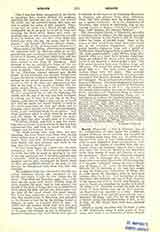

Beroth (BEEROTH), a city in Chanaan, one of the confederation of cities under the headship of Gabaon (Gibeon), whose territory was invaded by the Israelites under Josue (Jos., ix). Its inhabitants, together with those of three neighboring cities, in order to save themselves from extermination, went to Josue in the disguise of travellers from afar anal begged mercy; the Israelites entered into a league with them, but when the deception was discovered made them hewers of wood and drawers of water for themselves. Their city was afterwards assigned to the tribe of Benjamin (Jos., xviii, 25), but it seems to have remained Chanaanite till the monarchy, as it was only “reckoned” among the cities of Benjamin (II Kings, iv, 2). Later the Berothites fled to Gethaim (iv, 3), probably at the time Saul sought to slay the Gabaonites (Gibeonites, II Kings, xxi, 2), with whom the Berothites seem to have been reckoned (Jos., ix, 3, 17). Two descendants of these Berothites slew Isboseth, the son of Saul, claimant to his throne and rival of David; they brought his head to David, who punished the murder with death (II Kings, iv). Probably revenge on Saul for his injury to their fathers was one of their motives, for blood feud was regarded as a duty. Naharai, armor-bearer of Joab, David’s great general, was a Berothite (II Kings, xxiii, 37), and we read of men of Beroth among the returned exiles (I Esd., ii, 25; II Esd., vii, 29), though these were more probably Israelites.
Beroth is usually identified with El-Bireh, a, town of 800 inhabitants, about 9 miles north of Jerusalem, near which is an abundance of water (Berothwells) at which tradition reports Joseph and Mary halted on their return from Jerusalem when they missed the Child Jesus (Luke, ii). It was the usual stopping place of caravans to Nabulus and Nazareth.
JOHN F. FENLON

